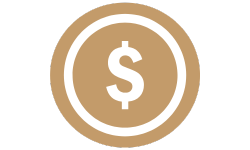Introduction: Laying the Groundwork
If you’re thinking about budgeting for the first time—or the first time in a while—congratulations! You’re about to take a big step toward financial peace of mind. But before diving into spreadsheets or apps, it’s essential to prepare. Think of this as the groundwork. Just like building a house, your budget needs a solid foundation.
Related: Let Us Help You Budget Better: Smart Budgeting Tips to Take Control of Your Money –
Why Mindset Matters Before the Math
Budgeting isn’t just about numbers—it’s about behavior. Before you begin, it’s worth checking in with yourself: What’s your attitude toward money? Are you budgeting because you’re stressed, excited, motivated, or maybe a mix of all three? Understanding your mindset will help you stay consistent, especially on days when the process feels tough.
What You’ll Need to Start Budgeting
Here’s a list of documents and info to gather:
- Pay stubs or income records (including side hustles)
- Monthly bills (utilities, rent, subscriptions, etc.)
- Bank statements (past 1–3 months)
- Loan or debt account summaries
- Credit card statements
- A list of irregular or annual expenses (car tags, holiday gifts, etc.)
Having these on hand will make your first budgeting session smoother and more accurate.
Set Realistic Financial Goals
Next, think about what you want your budget to do for you. Are you hoping to:
- Get out of debt?
- Save for a vacation?
- Build an emergency fund?
- Stop feeling anxious when bills are due?
Clarifying your goals helps you stay focused and gives your budget a purpose.
Choose the Right Budgeting Method for You
There’s no one-size-fits-all approach. Some popular methods include:
- 50/30/20 Rule: Spend 50% on needs, 30% on wants, and save 20%.
- Zero-Based Budget: Every dollar has a job; income minus expenses equals zero.
- Envelope System: Use cash envelopes for categories like groceries or entertainment.
- Digital Tools: Apps like YNAB, or EveryDollar can help automate tracking.
Choose a system that matches your personality and lifestyle. Prefer apps? Go digital. Like visuals? Try envelopes or spreadsheets.
Avoid These Beginner Pitfalls
- Trying to be perfect: Your first budget won’t be flawless—and that’s okay.
- Not tracking spending: It’s hard to budget what you don’t measure.
- Overcomplicating the system: Keep it simple at the start.
Final Thoughts
Budgeting is a journey, not a one-time event. Preparing now sets you up for long-term success. With your documents in hand, your goals in mind, and the right method picked out, you’re ready to build a budget that fits your life—not the other way around.
Disclaimer: The content on this post is for informational and educational purposes only and should not be considered professional financial advice. Your path to a debt-free and financially secure future awaits!

